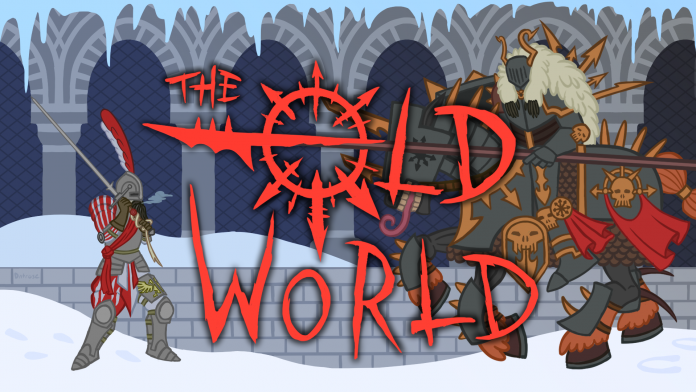“So Romanticism, having sounded all the tumultuous warning bells of uprising, had its days of glory and battle, lost of its force and its favor, abdicated its heroic boldness, became ordered and classified, skeptical and full of common sense”
–Jean Moréas, Symbolist Manifesto, 1886
The World-That-Was is dead. It was a world of green felt, a world of flocked trees and beautiful, thoroughly chipped pink foam. A world where no one knew what was good and no one really even knew how to play (the latter is arguably still true). Long may old men making Blogger.com battle reports where every tactical marine in their army has a first and last name rest. Long may getting banned from r/WarhammerCompetitive for starting a fight in the comment section reign.
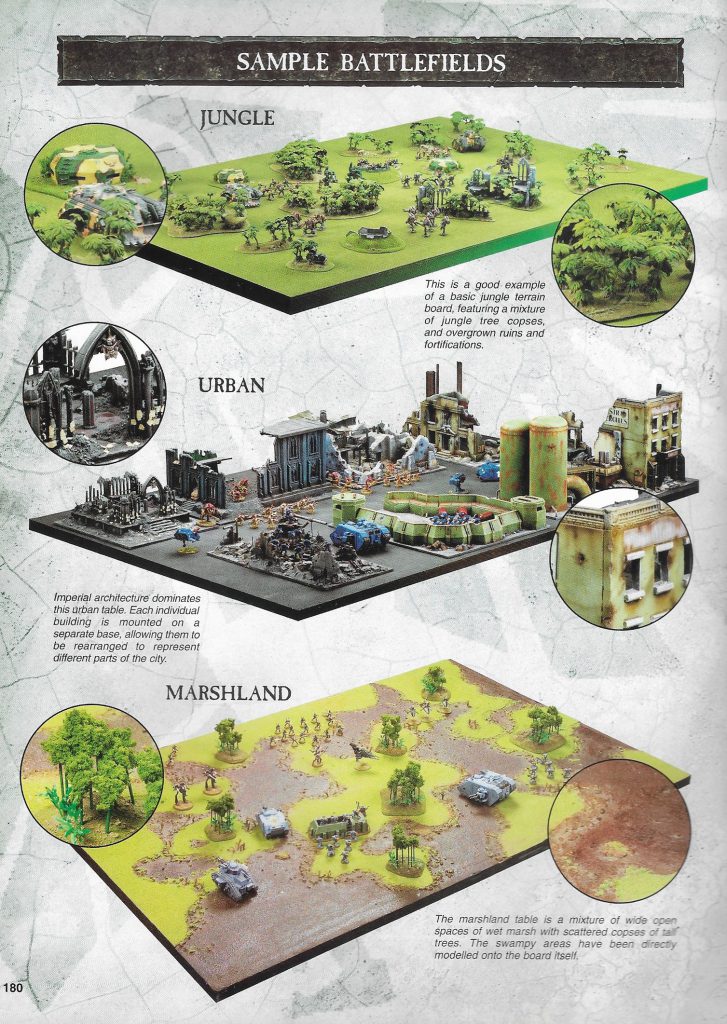
This is a new world. A world of spreadsheets; a world of FAQs; a world of frequently misinterpreted win-rate statistics that don’t account for player skill or matchup. A RAW world where tournaments can publish a 12-page packet on how to stand next to a wall and are correct for doing so. A world where an airbrush can be purchased for $22.99, arrive within 24 hours and paint nine Voidweavers in fewer than three.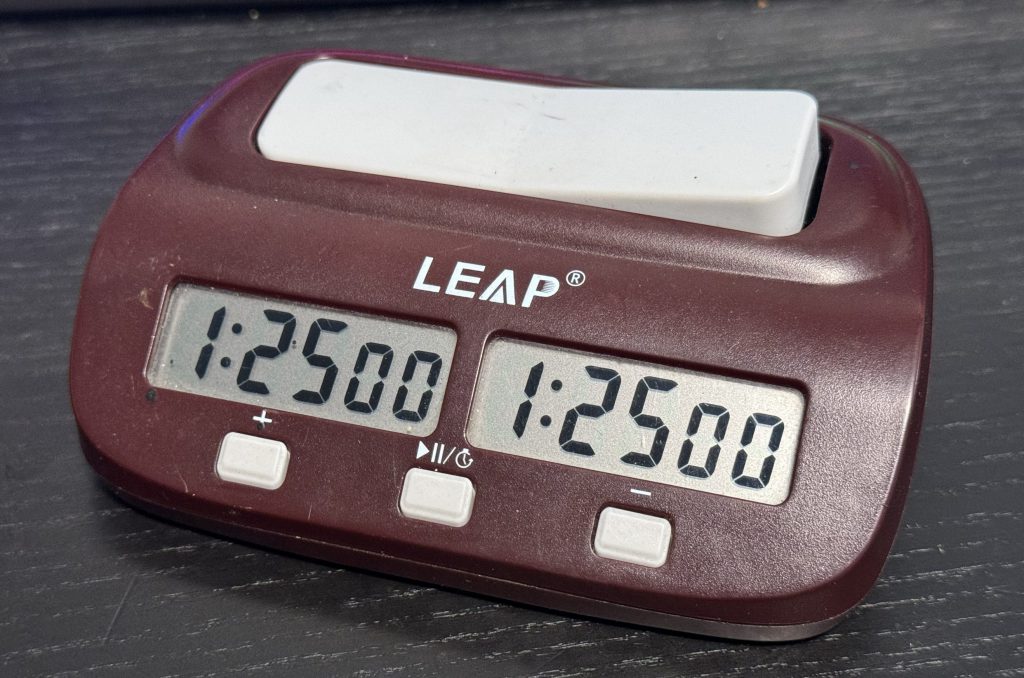
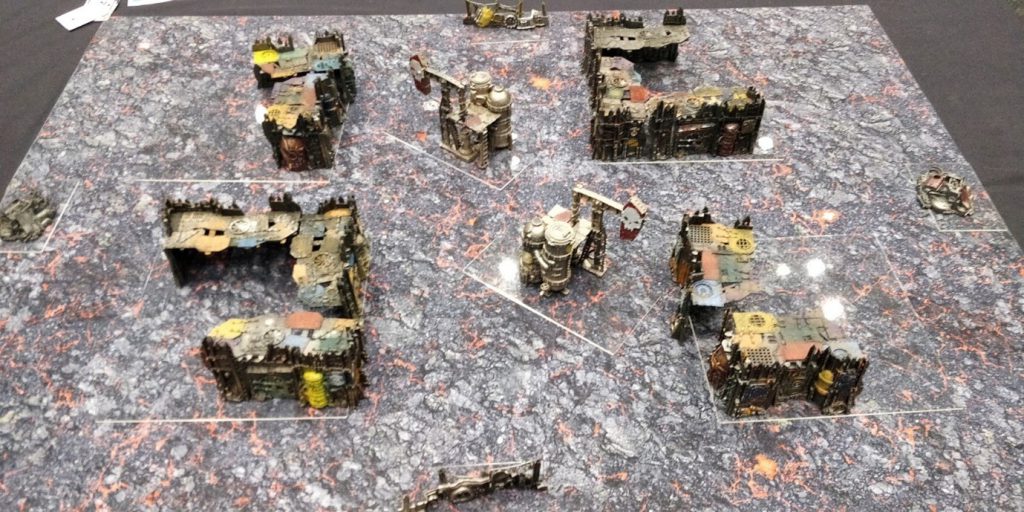
To be honest, a lot of the time it rules. This was the world a lot of us wanted, and many others thought they did. I am a sweat-lord at heart. I was born in the darkness (tournament 40K) and will always return to it. I have never screamed WAAAGH at an event, I make my Orks move block instead of charge, and from the tiny gleams of sadness in their eyes I can tell they resent me for doing so every day. For people with my mental health disorder (enjoying competitive Warhammer), some of these things are extremely necessary. I like psychotically-detailed tournament packets. I like pre-measuring the size of every ruin at a local game store a week in advance. I like looking at the recent event history of strangers on BCP with extreme confidence and struggling to make eye contact for the remainder of the tournament once I lose to them in round one.
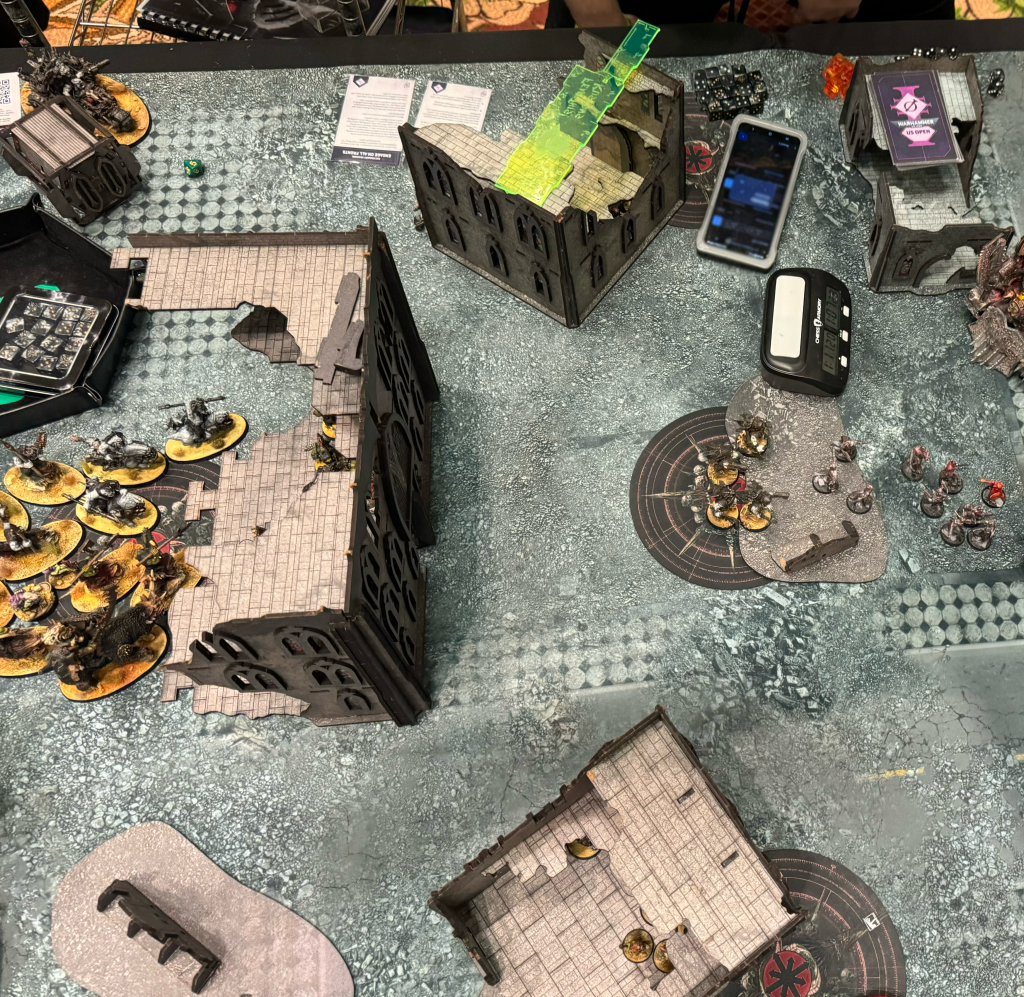
But none of these are the reason why I started playing Warhammer. And for the majority of tournament players I’ve spoken to, it isn’t for them either. For years I’ve complained about the problem while actively being a big part of the problem, but I have found light in The Old World and I hope it can save me.
My intention is to profoundly suck at playing Orcs & Goblins. I’m talking 500 points of level 1 Goblin Wizards levels of suck. I’m talking as many Doom Diver Catapults as eBay will allow me to purchase levels of suck. I want to become a tyrant of mediocrity. I want to be baptized in the fires of ambiguous blast template rulings, panic attack inducing levels of RNG and as many scatter dice as 2000 points can buy. I want to wash my hands clean free from the sins of a lifetime spent reducing beautiful lore into abstract math. Some stains don’t wash out, some bruises can never be healed; despite the burden of memory, I aspire to be new.
I firmly believe the fundamental mechanics of Warhammer are incompatible with 21st century competitive gaming standards. This was never a game designed to withstand scrutiny under any level of esports tier analysis. This is a game where an incorrect or ambiguous ruling can determine the final outcome of the largest tournament in the world, and that sucks but it’s also partially why it’s beautiful. At most points in its history, no one fully understands Warhammer. Most of the things that become best are almost never intentional. As an early adopter of ninth edition Freebooterz, watching everyone slowly discover Orks were now the strongest shooting army in 40k was really funny to see. Iron Hands were also really funny for the first 2-3 days of their 12 month reign.
List building in 40k is most interesting when it feels like the best possible list is just around the corner, and no one has discovered it yet. Where either infinite tweaking or continuously re-inventing the wheel will produce the best result. It’s fun to break games, and for many people (me), finding the thing no one else has discovered is secretly best yet is the central most exciting component of list building.
Balance is never really the goal for me, and most people who claim they want a perfectly balanced static game would be pretty bored a lot of the time if they actually got one. I feel like deep down all most people actually want is for stuff to feel cool and worth using and do what they assume it should do based upon how it looks. No matter how abstract the game gets, I think most people are still either consciously or subconsciously drawn to the immersion gameplay generates, which is why whenever 30 Desolation Marines become briefly mandatory, not even the people running them are happy. If the aesthetic and narrative components of 40k weren’t important on some level, we’d all just be playing chess.
My intention with the Old World is to take this same approach to list building, but not to maximize for actually winning the game. I want to build armies that min-max into extremely novel and funny experiences, and since I’m mostly just going to be playing with friends and not in tournaments, the drive to win is gone. I don’t want winning to be my central motivation in playing, and tournaments sort of fundamentally encourage that. Even if some people are able to look past it, I feel like I can count the number of regular tournament goers I know who genuinely do not care about winning at all on one hand (most casual players are secretly equally guilty of this but will only admit so under mild torture or duress).
Understanding things very thoroughly usually comes at the expense of fun. Practice is often antithetical to play. Neurotic perfectionists are not famous for enjoying their craft more than amateurs. There’s a reason all ork players but me have a reputation for being really fun to play against. In my mind, the archetypical Ork player is a bearded guy who wears shorts in winter, has a very friendly extremely big dog he drives around in his truck, and a comfortable mid-sized suburban home. They and their little green sons embody a spirit of amiable, childish glee. A platonic ideal of playfulness.
I am not them, but I want to channel what they have. I think I’ve spent too much time with modern 40k to be able to turn off the competitive brain switch. But the last time I interacted with Warhammer Fantasy was probably when I was 13 or 14, and a chance to approach a game from a fresh perspective, without ego or investment in winning, is really exciting.
Most millennial adults I know yearn to return to their childhood interests at some point when they realize whatever the big goal was didn’t fix everything. Sometimes it’s after graduating from college, or finding and/or ending a long term relationship, or finally getting to work in the film industry and realizing it didn’t fulfill their every need (extremely specific for no reason). 40k was that for me, but the 40k I engage with currently doesn’t really resemble the 40k I fell in love with. I’m going to keep playing in 40k because it’s a bridge to a lot of people I’ve grown to really like, provides a genuine sense of local community which is very difficult to find in modern urban living, and I’ll always love the modeling/painting component of the game, but having an outlet to explore other components of the hobby with a fresh start feels awesome. I love semi-low fantasy, and the mechanics of The Old World encourage an approach to list building that’s exhilarating. The sheer variety of bad magic items you can give to a Night Goblin Big Boss is incredible.
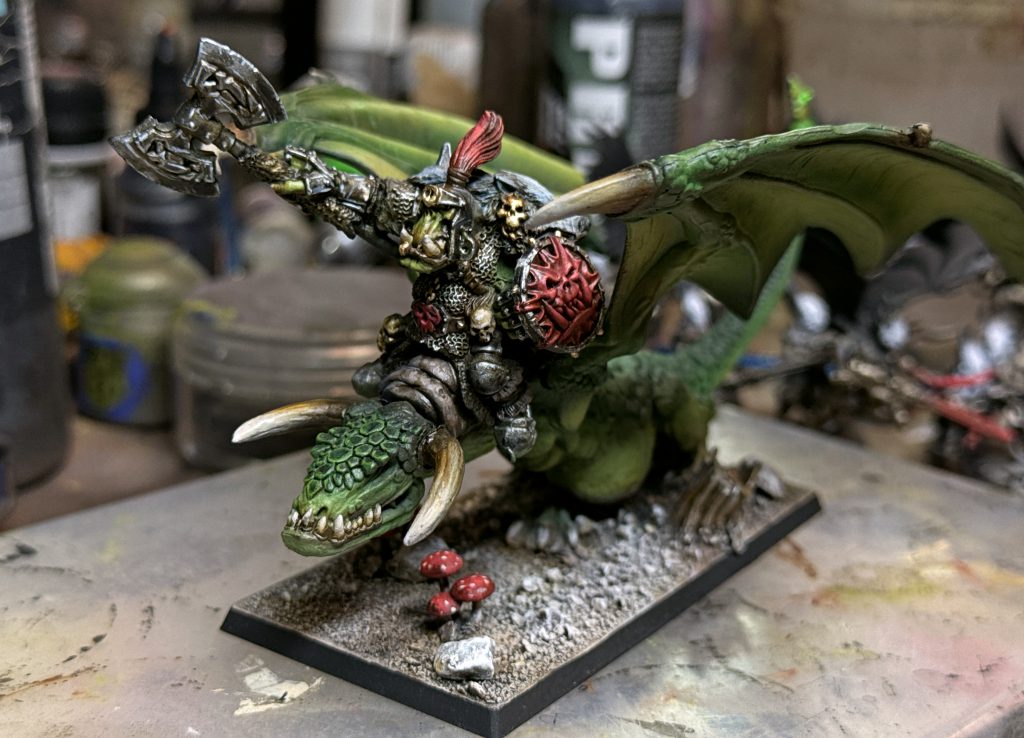
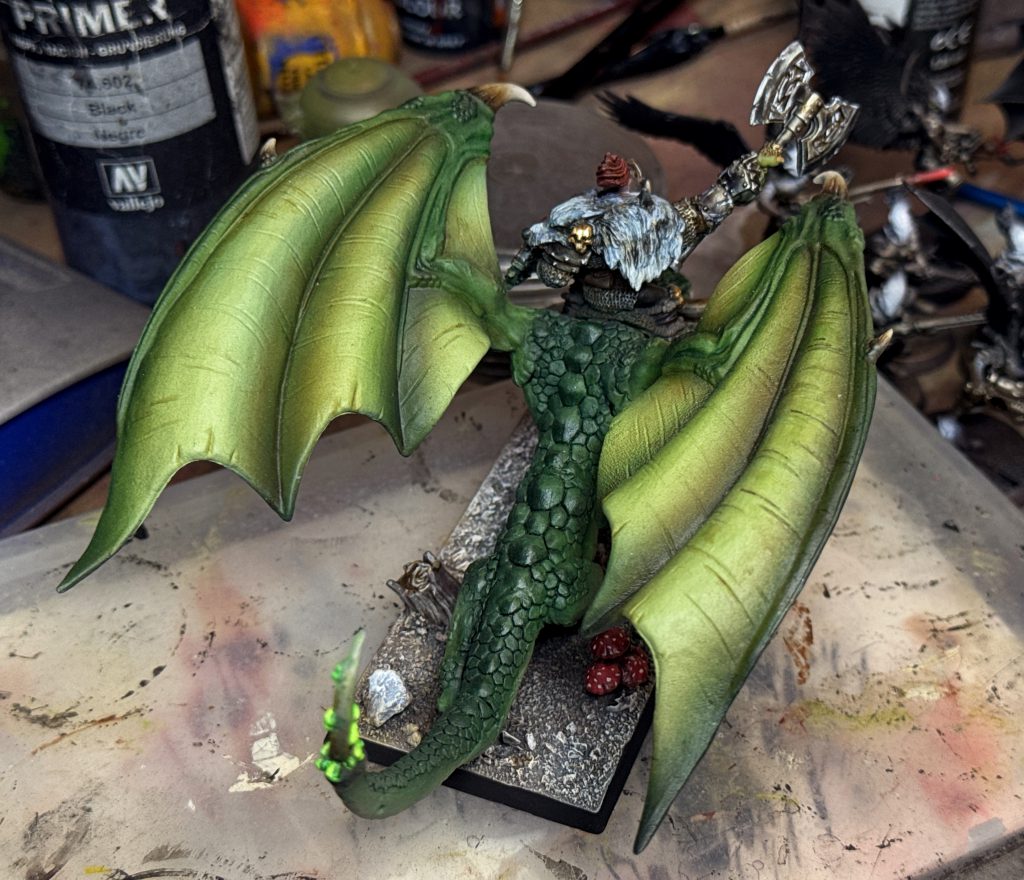
Another thing The Old World does that I miss in modern 40k is that the narrative of mechanics you’re engaging with usually feel like the star of the show, rather than the impact they have on the game itself. Something that stands out to me in codexes from 3rd edition is that the game mechanics and narrative flavor text were often written in the same paragraph. Modern datasheets usually function as: big lore description in italics that you’re supposed to skim over and sometimes feels like it was written by chatGPT, followed by “Once per battle round, one unit from your army with this ability can be targeted with a Stratagem for 0cp”. Intertwining rules and lore is something a lot of role-playing games do because generally the purpose of playing an RPG is to immerse yourself in narrative first, and engage with numbers only when necessary to make the game functional. I am an anti fun power gamer who rarely engages with true role playing these days, but I like my sweaty games to be flavorful, and to me, the more Warhammer feels purely like abstract math the more it feels pointless to engage with.
Narrative immersion is something that’s definitely still possible to have in 40k, but with the attempted streamlining of wargear options and upgrades and many other rules (something I understand they did for a reason, even if it makes me sad sometimes), modern 40k feels more like Magic The Gathering and less like an actual battle is going on. There’s nothing wrong with that, and I’ve had some really good games of 10th edition, but something always seems like it’s missing.
I think there are things contributing to this that aren’t the games fault, like modern terrain mostly being laser cut, flat windowless Ls that might as well be made of cardboard instead of $4000 Forgeworld art pieces that are impossible to use in any functional sense. But many rules in 10th edition 40k don’t feel like they have a clear lore driven purpose behind their implementation. I am not sure why having a Warboss stand near my Nobz makes them -1 to be wounded even if I’m really happy for them to be so. In contrast, it’s awesome the mercenaries I hire to fight alongside my Old World army could potentially show up hungover, regardless of the game play impact it might have. The emotional power of the rule from a narrative perspective becomes the hook, rather than the mechanic itself.
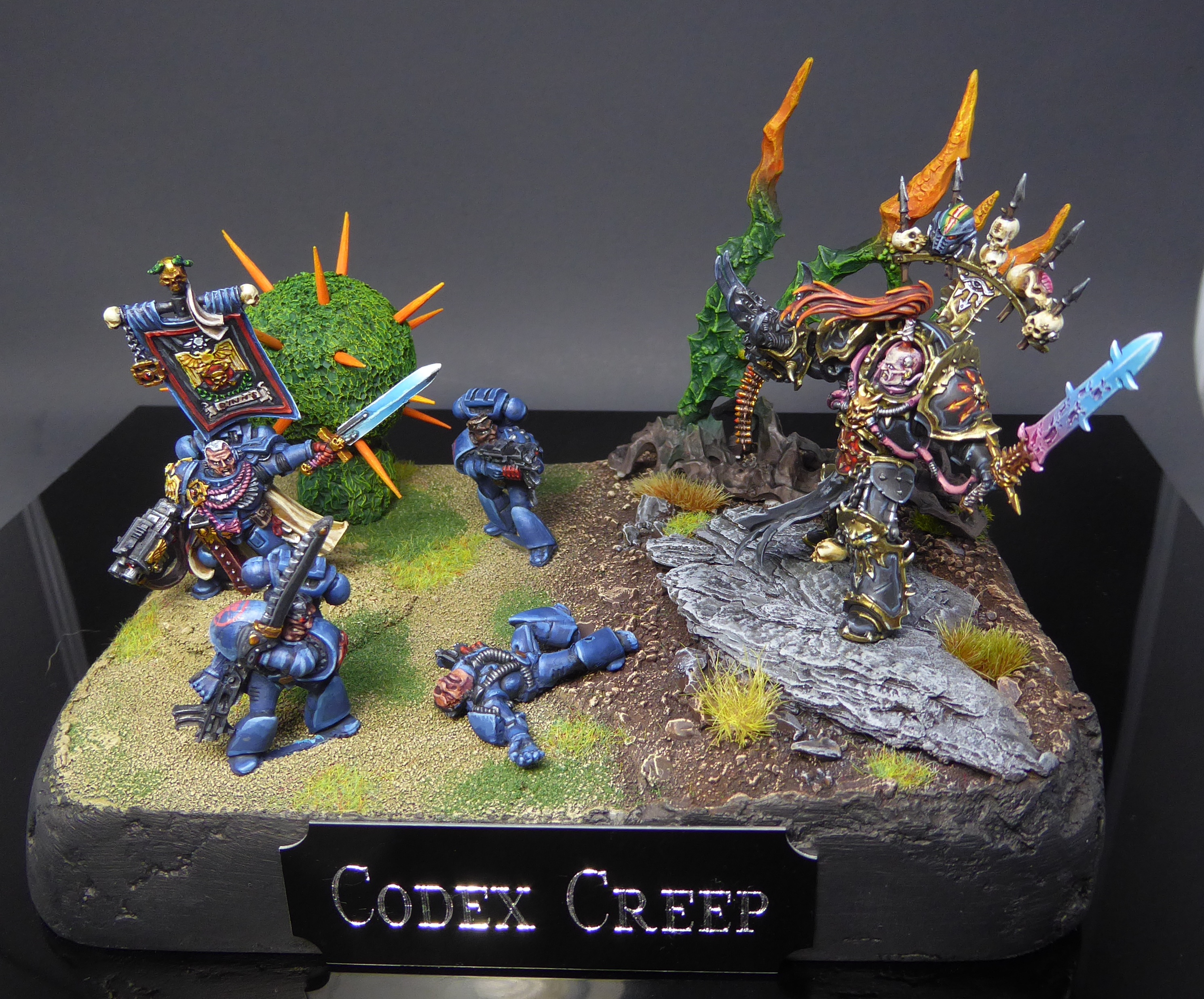
There’s obviously plenty of cool and awesome narrative rules still in 40k (Shooty Power Trip for Killa Kans is a personal favorite) but there definitely feels like there’s a design philosophy shift away from this kind of thing if you compare any modern codex to something like the Chaos Space Marines 3.5 edition codex. This doesn’t feel like the case at all in The Old World. There’s tons of room for personal expression through game mechanics and the specific ways you choose to customize your army in a way that is harder to generate in contemporary 40k.
In conclusion, I am a historical relic (30 years old) who loves to complain and I am excited to battle french knights in a grim fantasy setting full of static grass. The flocked trees have called and I will answer. There may come a day where my romanticized ideals of The Old World fade away and I run a 40 model long single rank unit of Black Orcs or whatever rules-as-written tells me to do. But as long as I can equip every Night Goblin character in my army with Fungus Wine, I think there will be enough immersion to keep me happy for a long time.
Have any questions or feedback? Drop us a note in the comments below or email us at contact@goonhammer.com.
